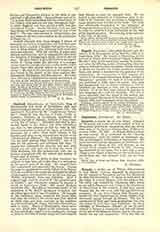

Cepeda, FRANCISCO (also called ZEPEDA and ZEPEDAS), b. in the province of La Mancha, 1532; d. at Guatemala, 1602. He became a Dominican at the convent of Ocana, and was sent to Chiapas in Mexico. He was a very active missionary among the Indians, and when the differing modes of instructing them became an obstacle to their conversion, Cepeda was sent to Mexico to simplify the Indian grammars printed there, and obtain a standard for the guidance of the missionaries. In consequence of that journey, the “Antes de los idiomas Chiapanecos, Zoque, Tzendal y Chinanteco” (probably the work of several authors) was published in 1560 under his name. The book has disappeared, but its former existence is well established, by Remesal at first, and by subsequent authors. It is the first book printed in America in four languages (five with the Spanish). The title is given variously, but the above is the correct one. Cepeda became Provincial of the Dominicans in Guatemala, 1593, and Commissary of the Inquisition.
AD. F. BANDELIER

